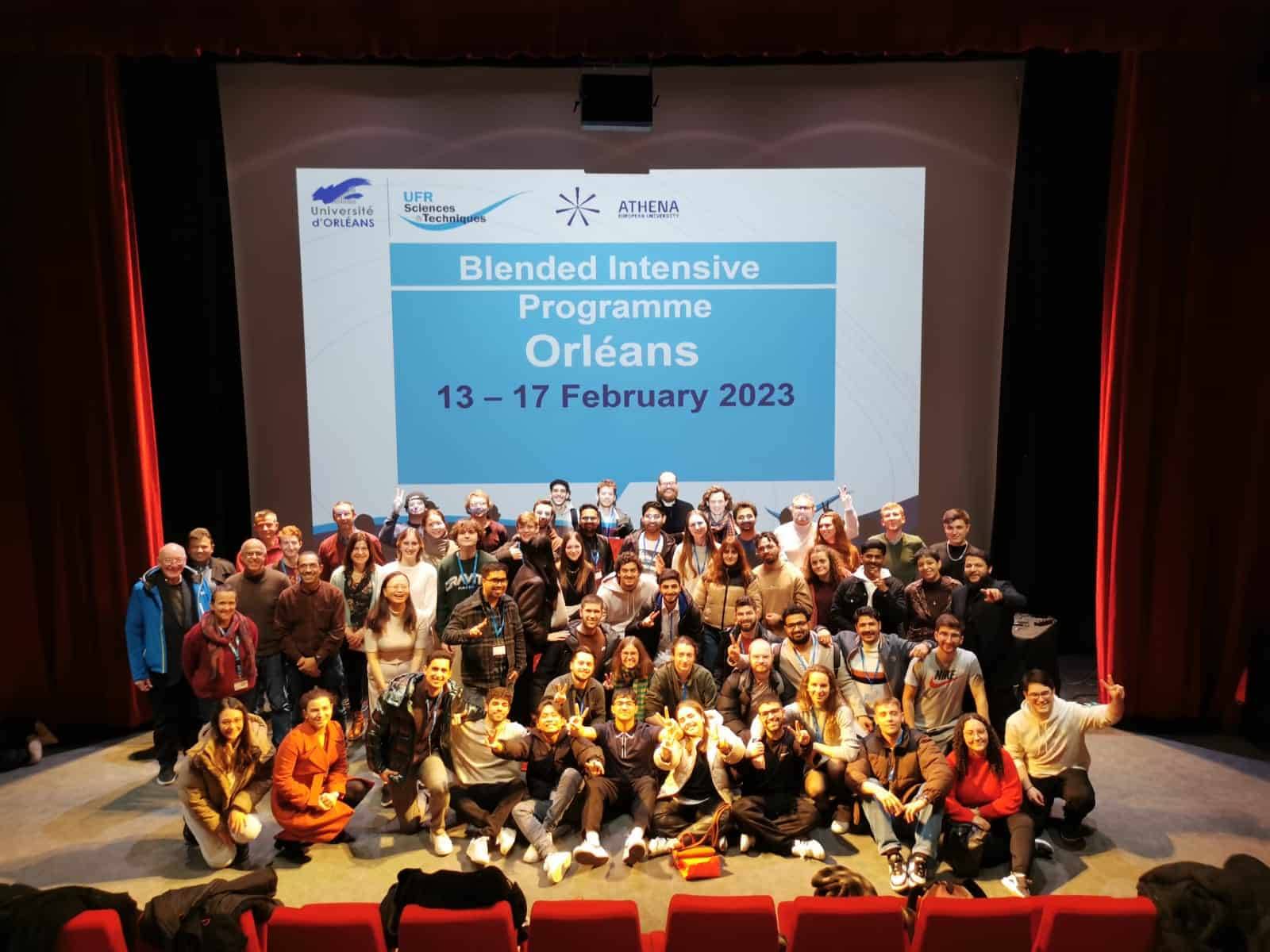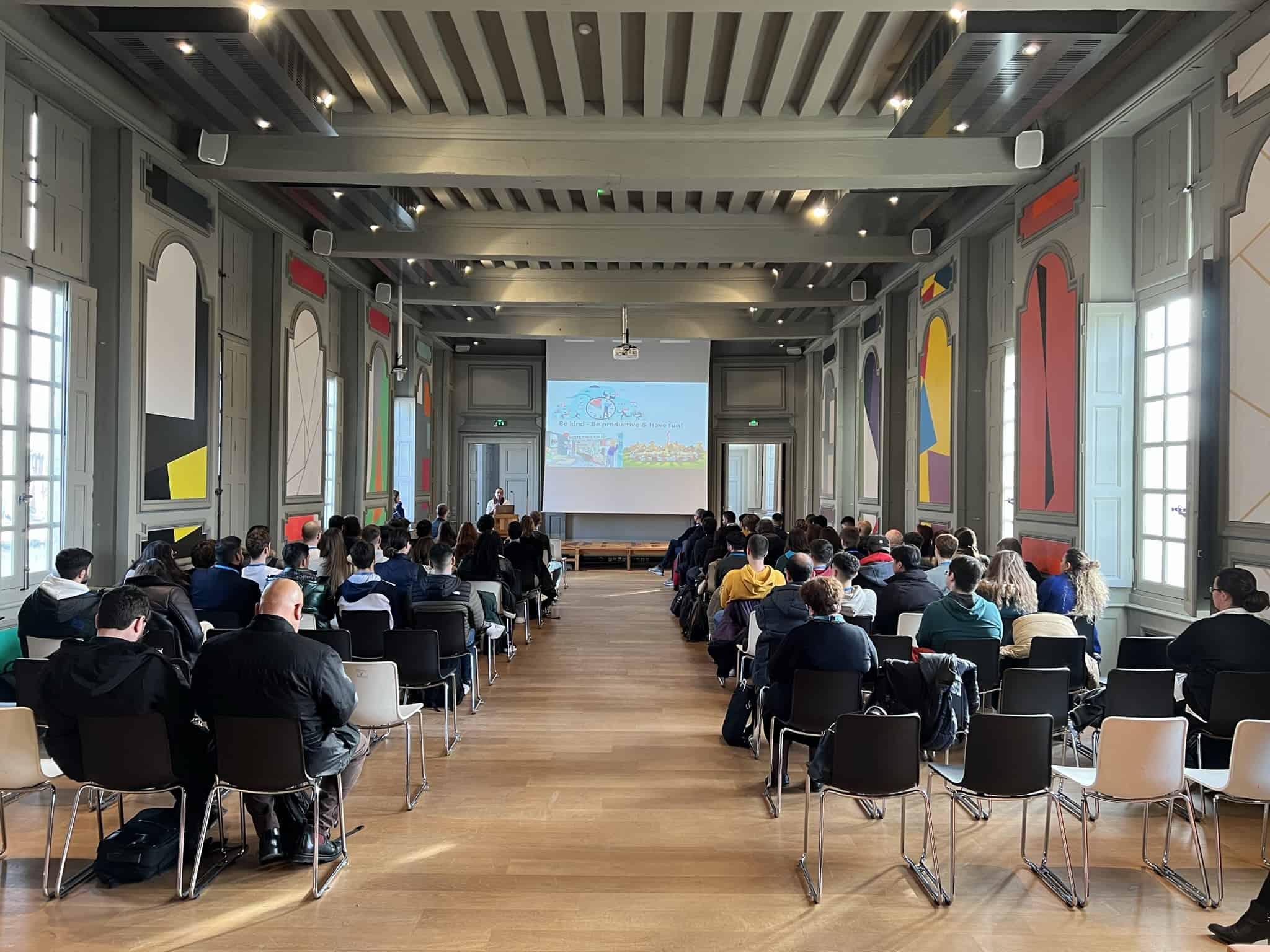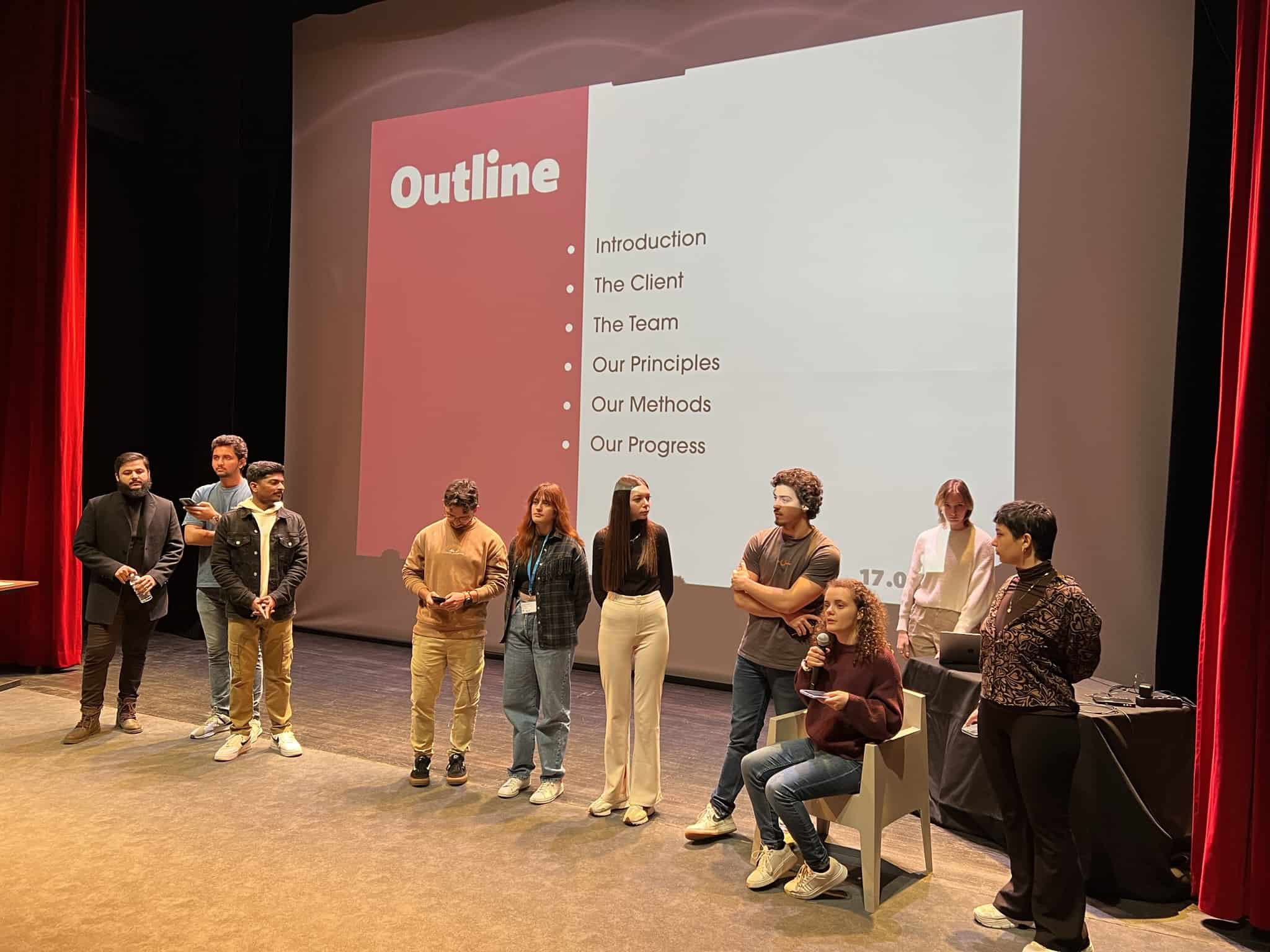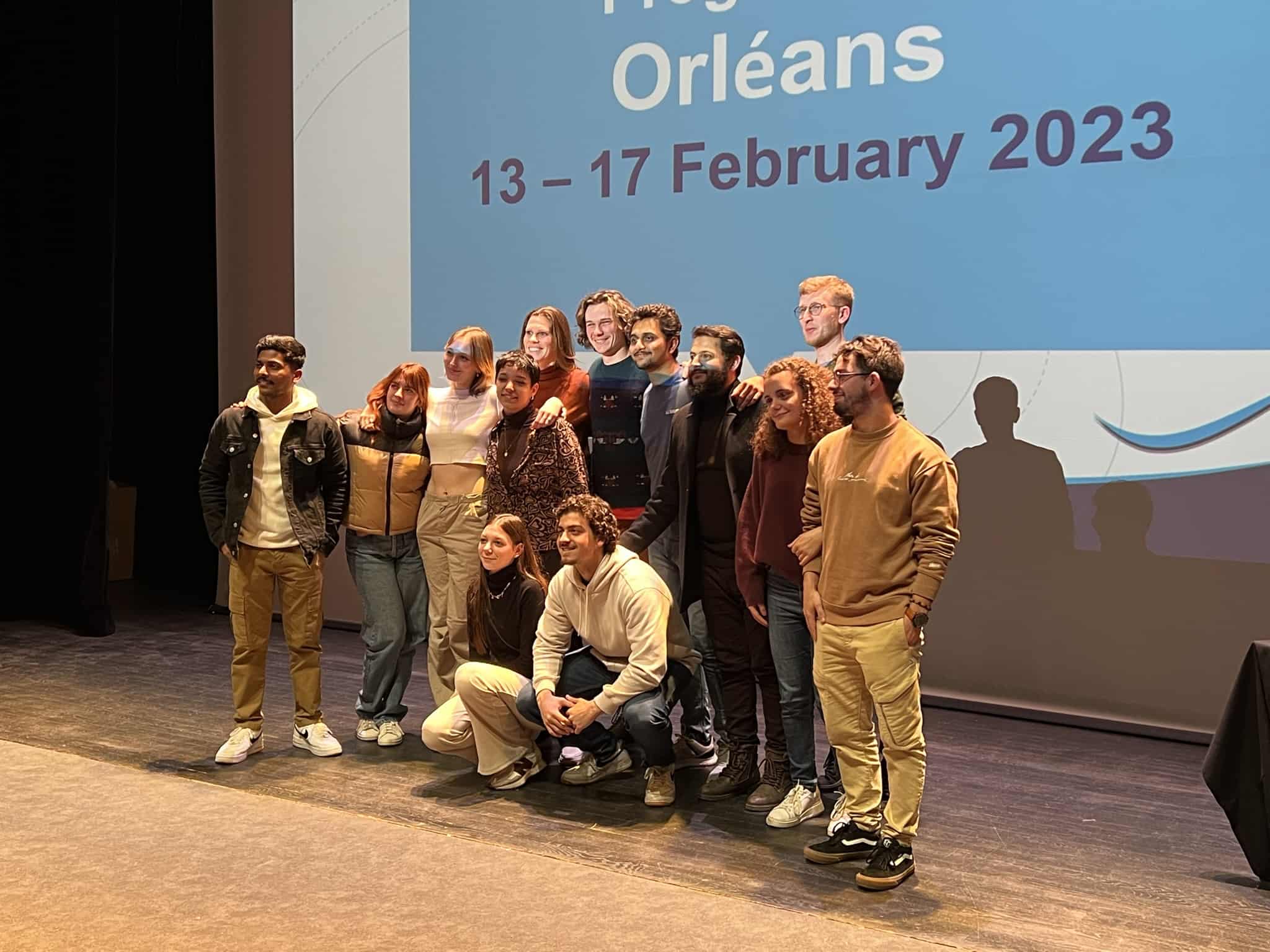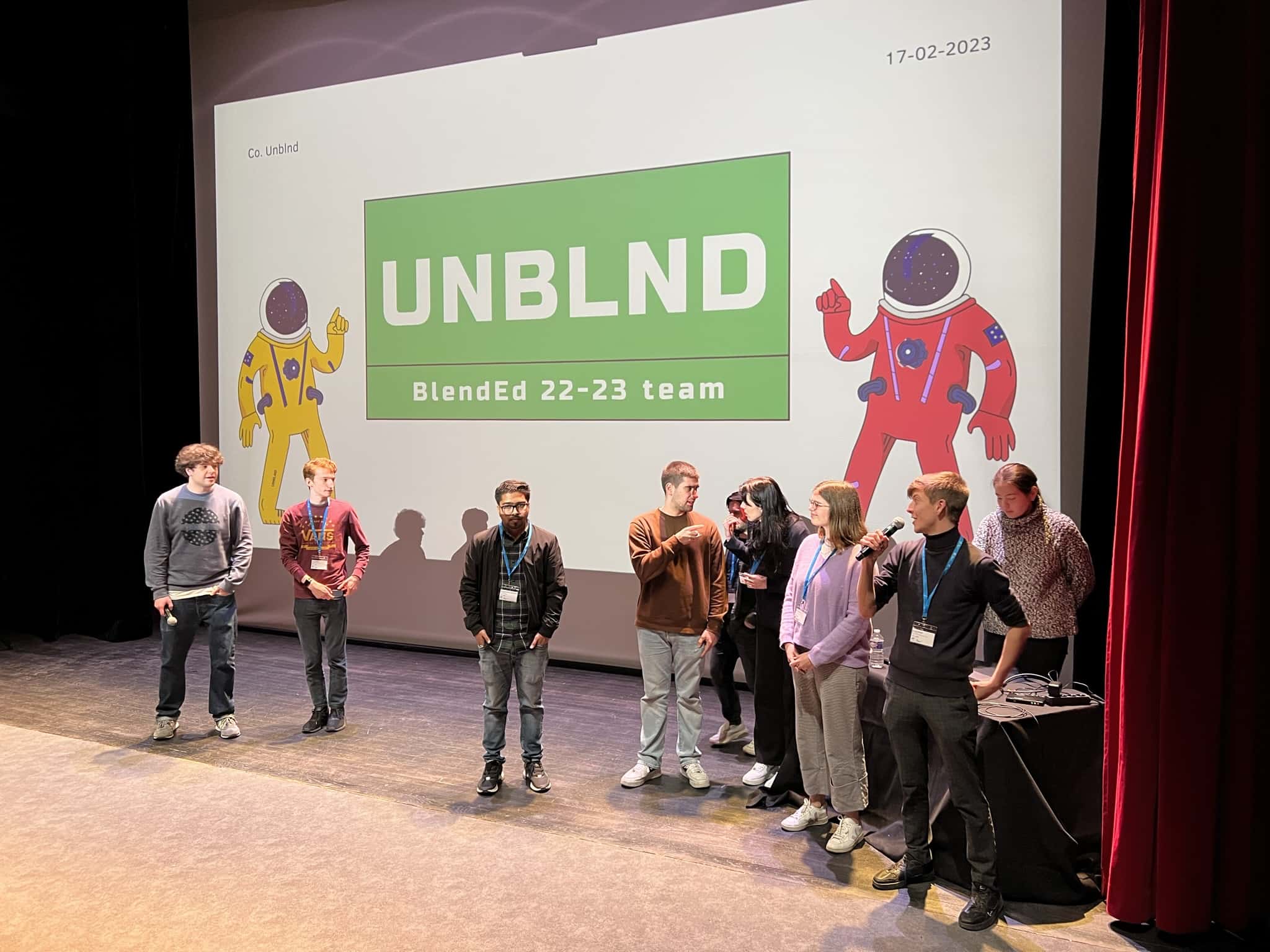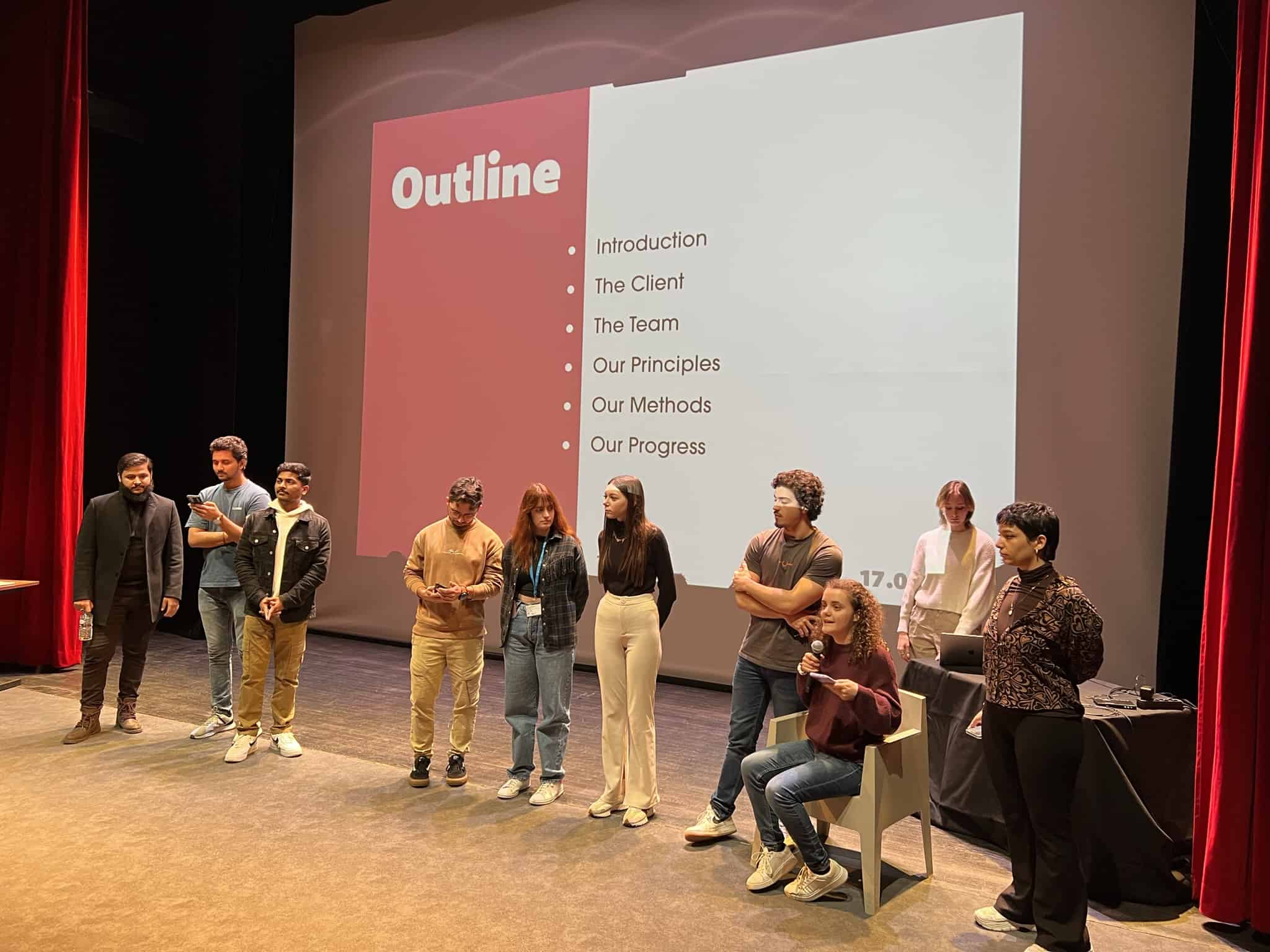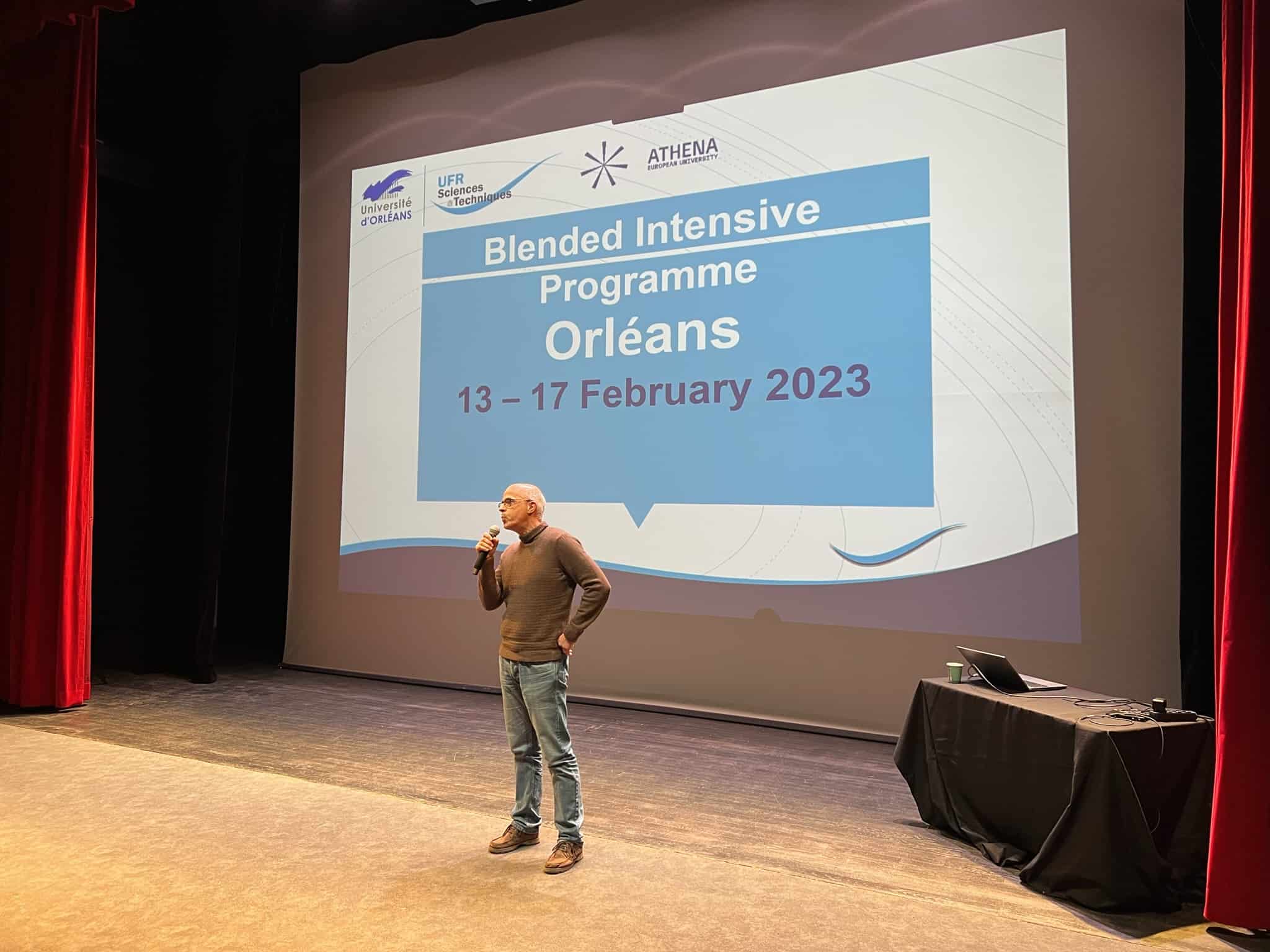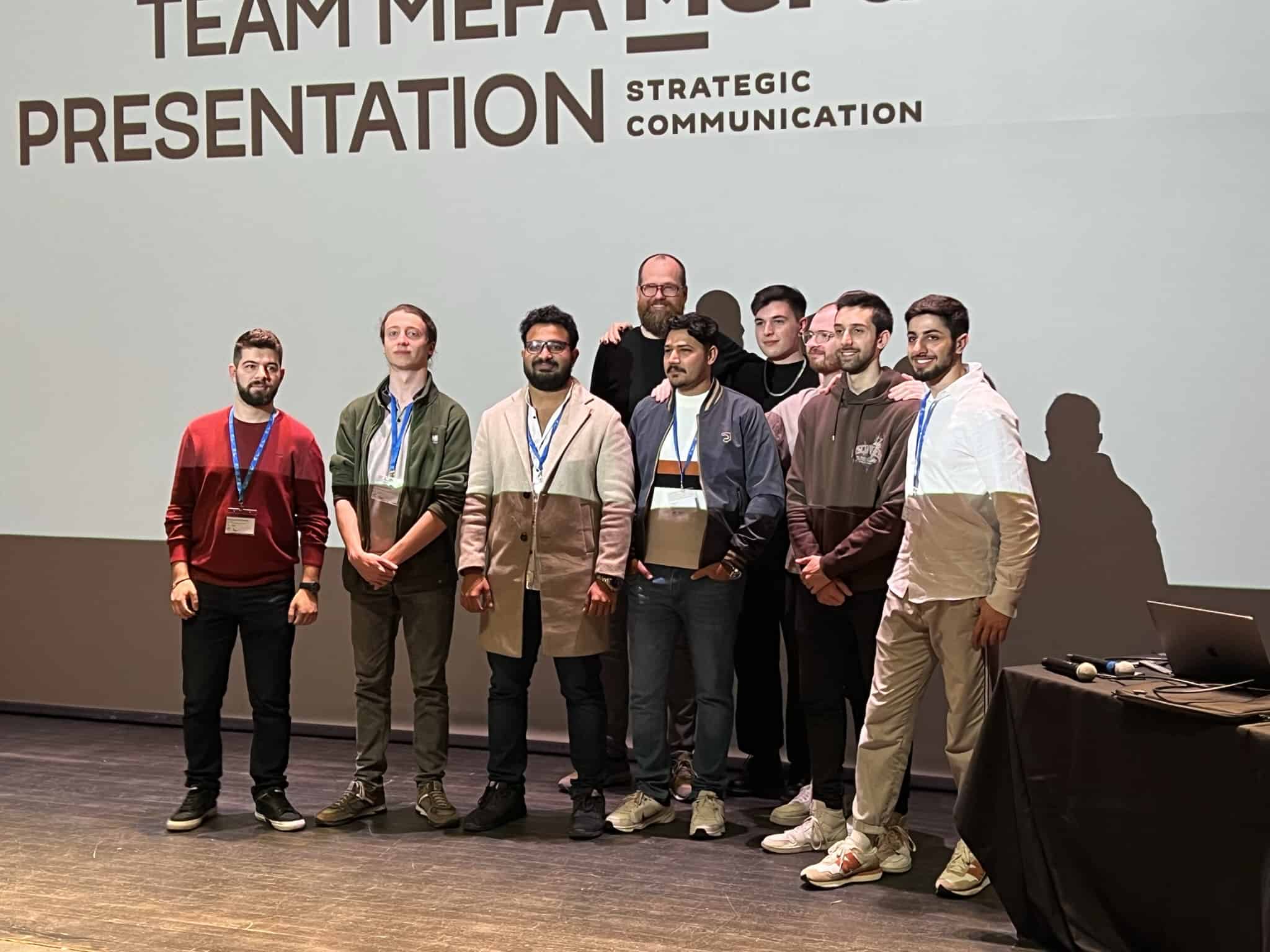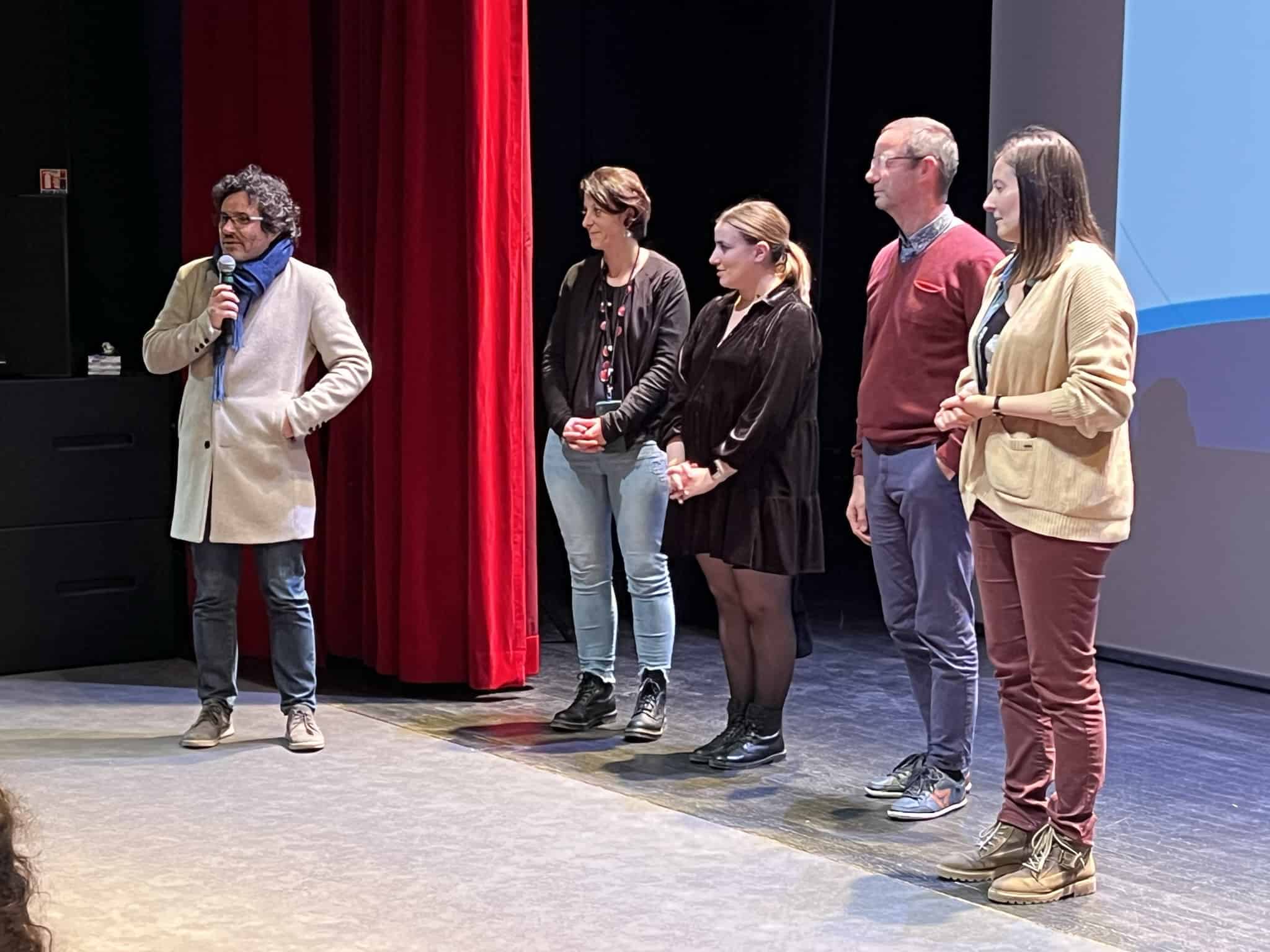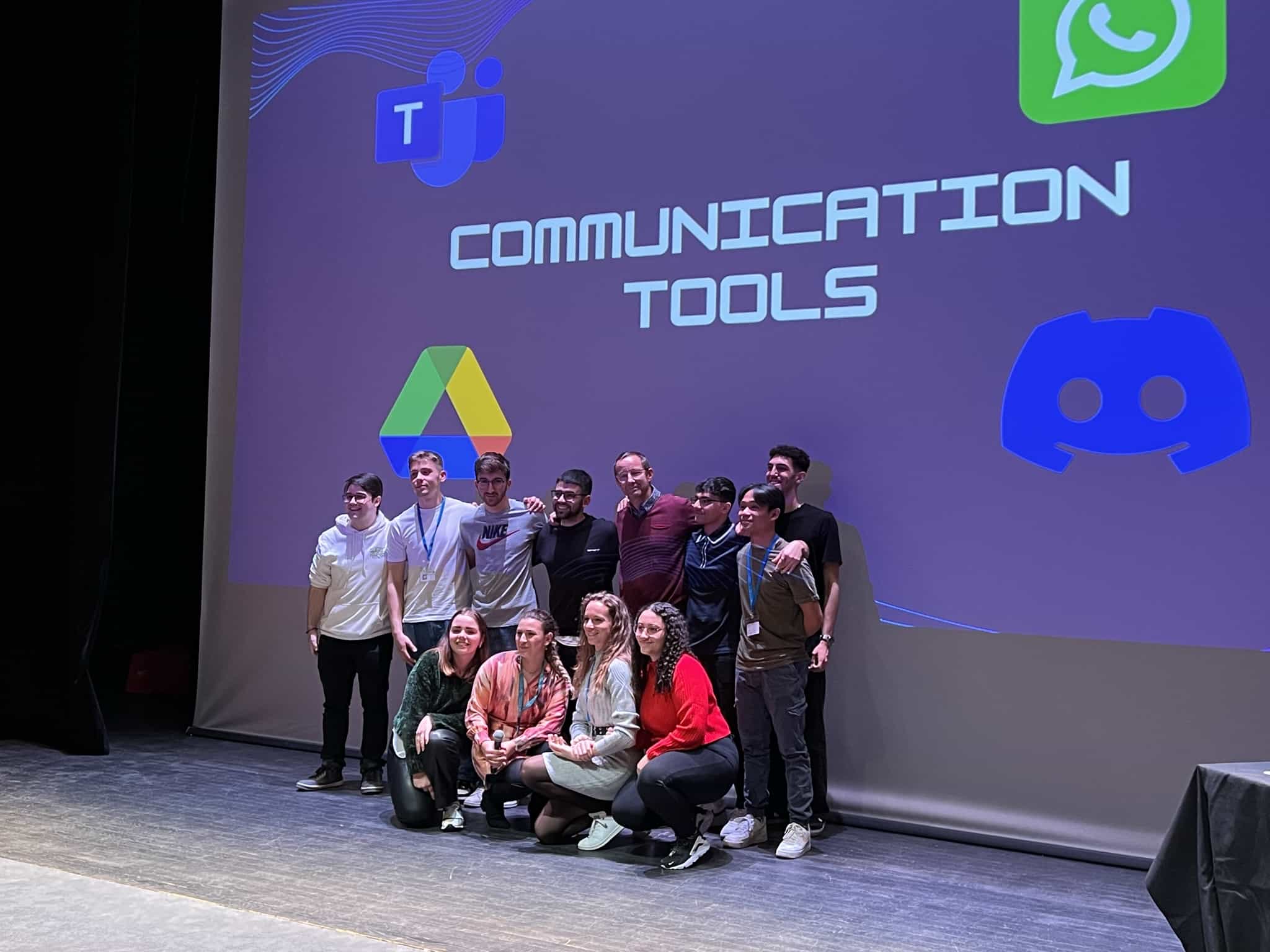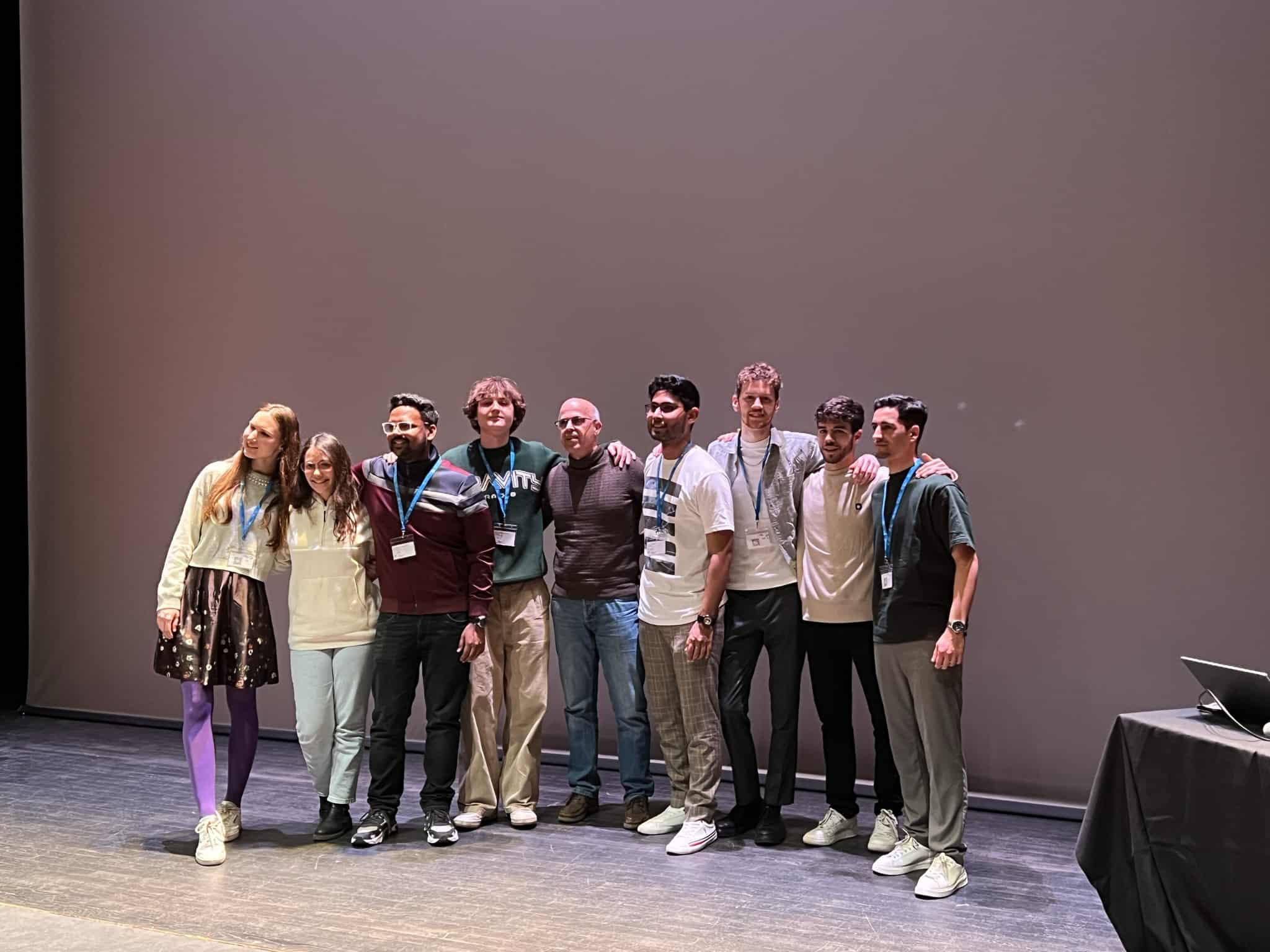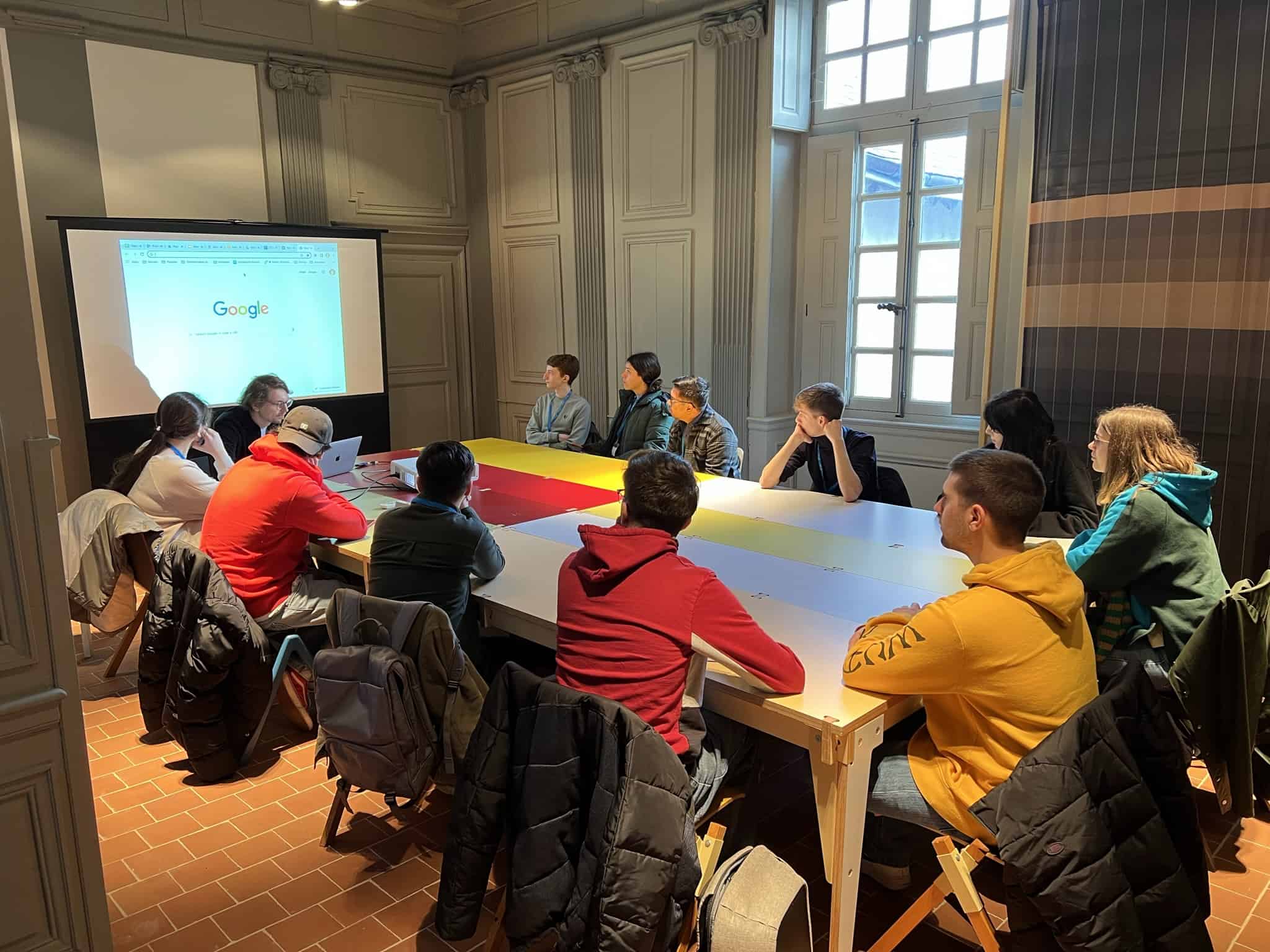Projects
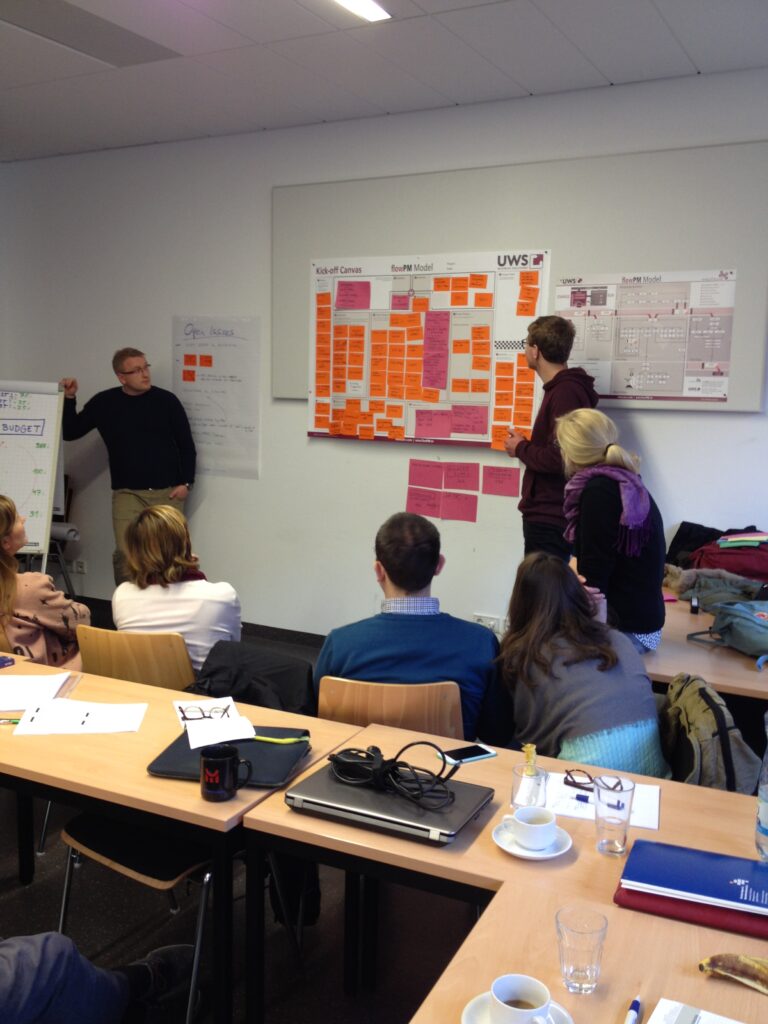
UWS Kick-off Canvas
UWS Business Solutions is a German company specialised in process and project management. UWS wanted to test the possibility of having an online version of their project management canvas. A multidisciplinary team of students designed and developed an app that allowed UWS’s consultants to collaboratively draft project management ideas with their clients, even if these clients are abroad.
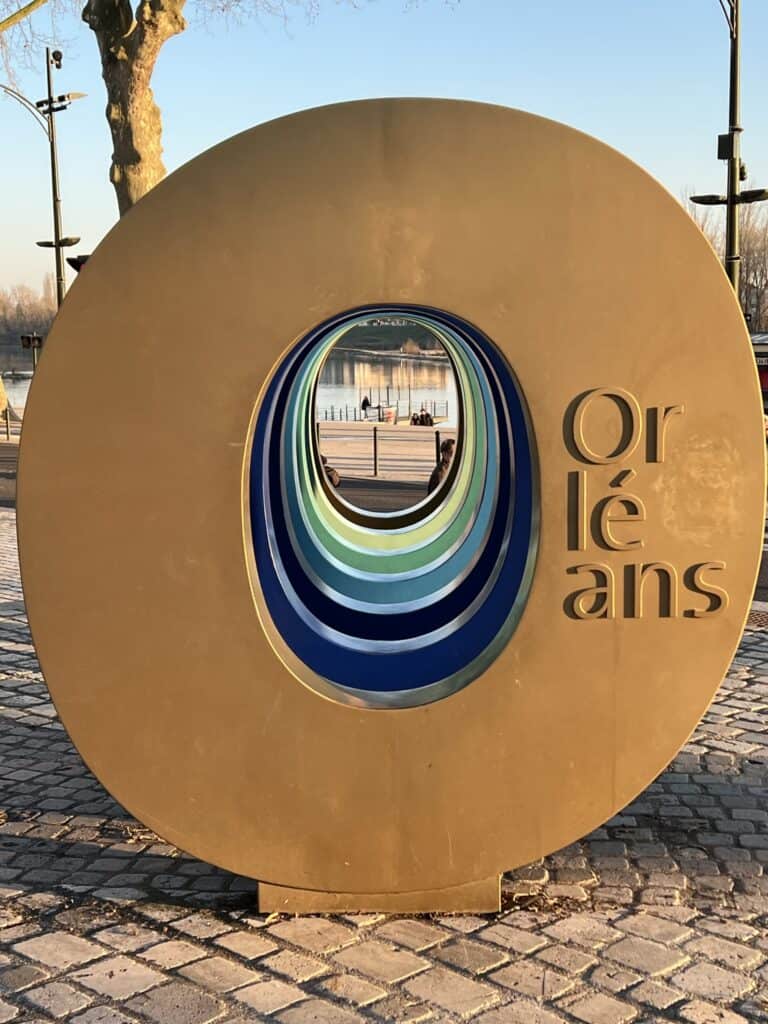
Trilogis – localisation of people
Trilogis, based in Rovereto, Italy, specialises in realtime outdoor and indoor localisation of people and assets. They want to test out an idea that could introduce their technology and know-how in industrial environments where safety and security are important. An international team of students is currently prototyping possible solutions and ideating business opportunities.
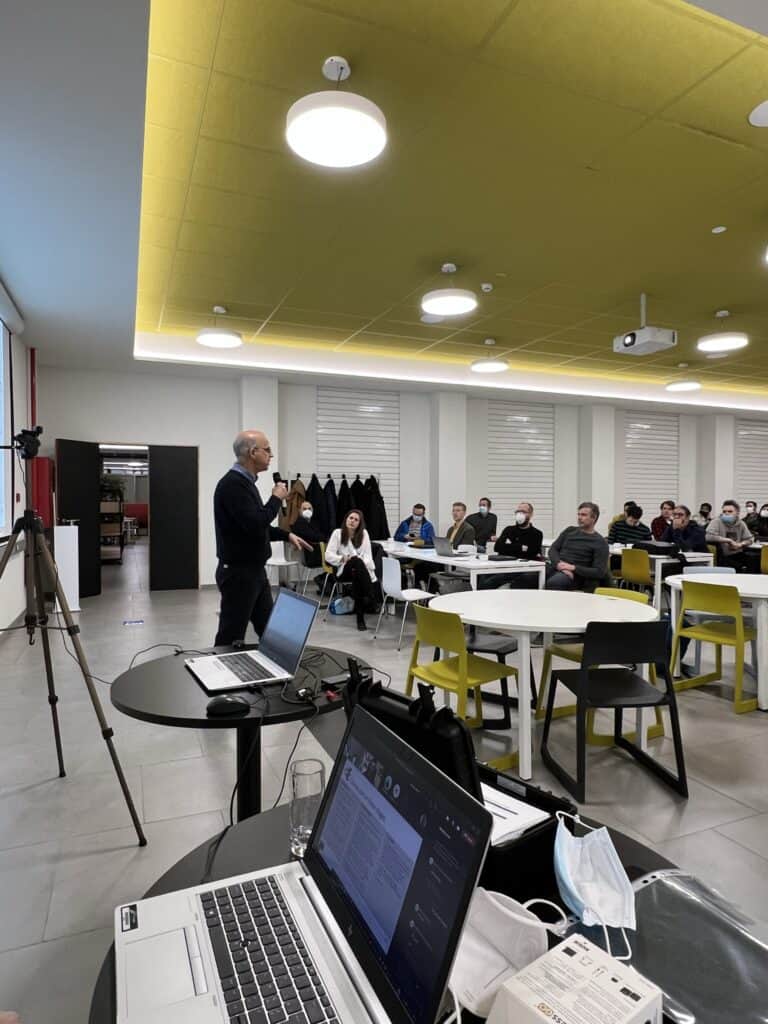
Epihunter – Detecting epileptic absence
Epihunter is a Belgian start-up from the IMEC’s accelerator programme. Epihunter provides solutions for helping people who suffer from epilepsy. Mostly this is done with mobile technologies. The students working on this project were assigned to work on the social app. This app should, for example, allow people to go out with friends safely and enhance their life at school.
Five things you should know about Blended Mobility
- Many years of experience
- European funded
- 20.000 partners
- 30.000 happy students
- 50 companies

Why Choose Us
Although working together with student teams is definitely an interesting way to test new business ideas, it can be quite challenging to set up and manage an interdisciplinary team of students to work with. Our contacts and years of experience might be helpful for you. And if you wonder we are also an interdisciplinary team of Professors, Teachers, Consultants and Freelancers from various professions (academic and Industry).

Consultancy for companies
Are you trying to setup a remote team? We already did it couple of times and you can learn from our experiences. We can coach you during the process, supervise it and help you to choose the right tools and methods for your team.

Coaching for schools
You want to set up a blended mobility course yourself? Organise a team day with us or join us as partner.

Prototype creation
We select for your company the right last year students. They create during a semester a prototype for your web application. You will get an international team eager to work with you and design an inspiring prototype. Of course you can also try to hire the students afterwards, but be prepared, they have a lot good offers after this kind of project.
Our partners
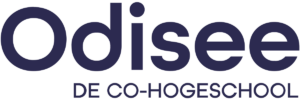


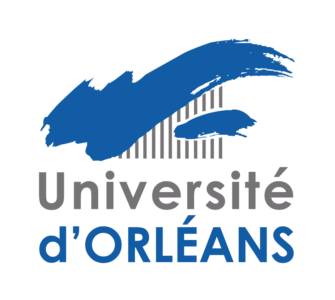
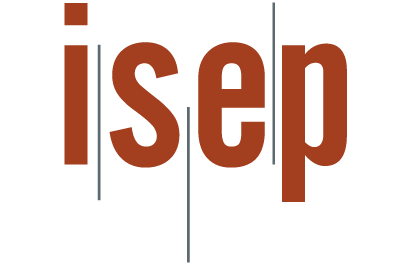
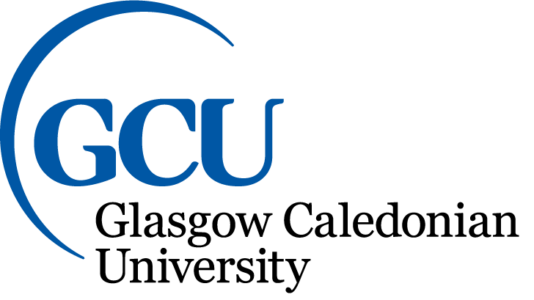




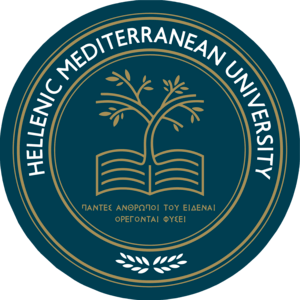
Projects
What kind of project can I expect?
The goal is to have a project carried out by a multidisciplinary team of students (designers, developers, business students, ...). The project is aimed towards a professional client. During the kick-off meeting a concrete project proposal will be launched, preferably by that professional client.
What is a Blended Mobility Project exactly?
BlendEd Mobility Project is an international student project where collaboration is mainly performed on a remote basis. With the blended mobility concept you will mainly work from your home institution, except for the kick-off meeting and the final presentation. During the kick-off meeting students meet for the first time and the project gets launched. At the end of the project, students meet again to finalize their project and present their results to the organizing committee. Usually the team consists of students from different disciplines so that the team can benefit from each other’s skills and knowledge (e.g. design, development, marketing, business,...).
Which kind of evaluation is implemented in the BMP?
There can be different types of evaluation in the BMP. Usually you will create some kind of prototype, which will be the result of your teamwork. In addition to this you will have to present your work to the teacher board and possibly also to the industry partner. Furthermore you might need to write a report about the project. The concrete evaluation process depends on the project scope and will be set up and communicated by the organizing committee.
How much time will I have to spend for the BMP?
The number of hours you will work on the BMP will depend on your ECTS. Regardless of your ECTS, you should be involved during the whole project. If there are other important dates (e.g. exams, holidays,...) during the project time, you must inform your teacher and your team as early as possible.
What is a Blended Mobility Project (BMP) all about?
A Blended Mobility Project (BMP) is all about teamwork and international collaboration with students of different disciplines. This experience will improve your technical and social skills and give a boost towards your employability.
Credits
Will this be part of my normal study programme?
There are three options. Option 1: the BMP replaces one or more courses or modules in your normal study programme, in which case you will get the ECTS credits for the courses that are being replaced. Option 2: The BMP comes on top of your normal study programme, in which case your institution decides if you get extra ECTS credits for the BMP or not. Option 3: There might be specific rules at your institution that differ from options 1 and 2. Get in contact with the responsible teacher who will explain to you how this project can be integrated into your study programme.
How many ECTS credits do I get?
This can vary from rather low (minimum 6) to high (e.g. 20) ECTS. Rationale: less than 6 credits makes it difficult to collaborate for a semester. Talk to your own teacher to know how many ECTS credits you get.
How do I get ECTS credits for this project?
Since every institution has its own rules, you must get in contact with the responsible teacher in your own institution. They can inform you about the right protocol for your institution.
Do I get an exemption for another course?
It is possible that the BMP replaces one or more courses or modules in your normal study programme. In that case you will get the ECTS credits for the courses or modules that are replaced. You have to discuss this with the responsible teacher within your institution.
How will this project be assessed?
The BMP organizing committee defines, for every individual BMP, the criteria and formula for assessment. The following factors will make up the final grade: team work, peer-to-peer assessment, individual contribution in process and product, documentation, report, (interim and final) presentations...
When does the BMP start? When does it end?
The BMP typically takes a semester (about 4 months). However the starting time and ending time can differ from your normal study programme, because the different participating institutions have to follow a common schedule. Depending on your ECTS, you will work full time or part time on the project. Regardless of your ECTS, you should be involved during the whole project time.
Teamwork
How will I expand my social skills?
In addition to the 2 physical meetings, you will be working together in a virtual way for about 3 months.. The international setting offers lots of opportunities to expand your social skills.
How can I work better in a team?
During the kickoff meeting, take the time to get to know your team members. By making use of collaborative tools you will learn how to make team communication work.
Will the project meet my expectations?
BMP aims to combine and enhance student skills towards a common realization. Apart from the obvious engineering skills, teamwork and communication capacities will be extensively addressed. Success will highly depend on the degree of interaction between the participants! As you will be working in an international setting all the way, we expect your overall international interest to expand and influence the choices you make in the future.
Travelling and cultural experience?
Depending on the location where the kick-off and final meetings take place, you will go abroad one or two times. Both meetings take about one week. You should be able to attend both meetings! Get in touch with your teacher if you are eager to know the dates and destinations for the next edition of B-AIM course.
Financial
How much will this cost?
If your institution is not organizing the meetings, you have 2 times a cost for travelling and 2 times a week for the accommodation. Next to this there's the cost for meals and personal expenses. Check within your institution which costs are refunded and to what level. However, if one of the meetings is organized at your institution, you will not spend travelling nor accommodation for that meeting.
Do I have to pay travelling and accommodation myself?
Usually you don't have to pay for the travelling costs and the accommodation. Depending on the arrangements in the BMP, you might need to pay for your food and drinks on your own. There might be some official events, where you can get a reimbursement for your expenses. You should talk to your teacher about this so that you exactly know what the arrangement is.
What do I have to do to get the money back?
If you can get a reimbursement for your expenditures, you should remember to ask for receipts. Your institution needs these receipts as an official document and proof of your expenditures. Probably you will also have to fill out some forms in order to get reimbursed. Your teacher will provide you the necessary information about this process.
Can I get an Erasmus fund for this?
There is no Erasmus funding for this type of mobility. Erasmus regulations state that you have to stay abroad for at least 3 months. Within the BMP scope you will only be abroad for one or two weeks, depending on the location of the BMP-meetings.
Subscription
How do I write a good motivation letter?
Always write with the people who will read your letter in mind. What do they want to know about you? Why would they choose you? Introduce your name, age, study programme and year in one short sentence. It's important to make sure they see you as someone with good social skills: pro-active, good team spirit, positive collaborative mindset.
How do I do a good pitch video to show/sell/promote myself in 60 seconds?
Same rules as above apply! Make sure the audio has good quality so everything you say can be understood. Keep it simple and be your best self. Use a tripod to avoid shaky video.
Travelling
Who arranges the travelling?
The organizing committee fixes the dates and the places for the kick-off meeting and the final presentation. The responsible teacher at your institution will provide you with the details. It depends on your institution if you have to book the travel and accommodation yourself or if your teacher will do it. Nevertheless, your teacher will assist you and can answer important questions about travel and accommodation.
Do I have some free time during my time abroad?
This depends on the meeting schedule and the project status. Usually there are time slots where you as a team can decide whether you want to keep working or do something else. Also check with your local institution whether it's okay to stay during the weekend before or after the project meeting. That gives you some extra time to visit the area. Of course you'll have to pay yourself for these extra days, regardless whether your institution refunds your travel or not.
Do I need a visa?
Within Europe there is no need for a visa, but if it concerns an international cooperation with non-European institutions, it may be necessary to get a visa. Your teacher will provide you this information beforehand so that you have enough time to arrange your visa.
How long do I have to be abroad?
There are two physical meetings in the BMP: one for the kick-off of the project and one at the end for the final presentation. Each time you will have five full working days to meet your team and work on your project. You should consider the time you need to travel to the meetings as well. Most probably you will travel on Sunday and return on Saturday.
SOS
What if a team member is not contributing (enough)?
The student team should communicate and take responsibility in getting/keeping everybody involved. In case of a blocking situation, e.g. when a student is not contributing at all or neglecting all decisions taken, the teacher board can decide to exclude a non-contributing student from the project.
What if I disagree with a decision?
Communication is a very important aspect when working in a team. The team will have regular meetings where topics are discussed and decisions are made. Students within the team will be given certain responsibilities. However, should the team not be able to solve the problem itself, the teacher board should be contacted in order to take appropriate actions.
What if I missed the train / plane?
The teacher board should be contacted in order to take appropriate actions.
What if I get ill for a longer period?
Make sure your team members know in time that you won't be able to contribute to the project for a while. The teacher board should be contacted in order to take appropriate actions.

